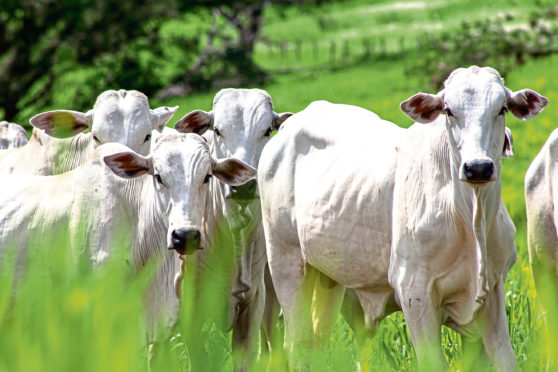Confusion over agricultural trade issues and Brexit has continued, with uncertainty now seemingly the only certainty farmers have.
Last week brought reports that the government will allow a significant volume of beef in from South America with zero or reduced tariffs if there is a no-deal Brexit.
Then at the NFU England annual general meeting the Defra minister Michael Gove said tariffs would be imposed on food imports.
This would increase food prices when a no-deal Brexit would weaken the UK economy.
This suggests that while appearing to assure farmers, Gove was in fact sending a message to the Irish government that if it fails to give ground on the backstop its food industry would take a huge hit in its biggest market.
As a result, Gove’s assurances to farmers did not resolve the situation, but left more unanswered questions.
Meanwhile, it has emerged that rolling over EU trade deal arrangements to the UK in the event of a no-deal Brexit is not proving to be the rubber stamping exercise the government thought it would be.
Post-2020 policy
Reform of the CAP to create a post-2020 policy will not be completed and agreed before the European Parliament ends in May.
This was confirmed this week and it means one of the first responsibilities of the new parliament will be to sign off the details of the new policy.
One further confusion is whether it will then be possible to complete the reform before the present European Commission is replaced in October.
This could see a situation where new MEPs and a new farm commissioner will be asked to sign up to something agreed by their predecessors.
If they are reluctant to accept this, the whole CAP reform process could be delayed, potentially limiting the time available to adjust to a new system.
If pressed to an early vote, MEPs facing an election may however have used the process to grandstand, meaning that on balance, the delay is possibly the better option.
It will also exclude British MEPs from voting on a reform that will only be implemented after Brexit.
Long process
The report from the European Commission on the dependence of the EU on imported proteins has confirmed that the goal of becoming more self-sufficient will be a long process.
Indeed, it makes clear that rising demand from the livestock industry will see import dependence rise rather than fall in the short term.
It warns, however, that securing proteins that can be guaranteed GM-free is becoming increasingly difficult.
The report says that soya makes up 80% of the demand for proteins and that while some developments in Europe are encouraging alternative crops, it is a slow process.
Far from being a future plan, the document effectively sets out where the EU is now. There are few signs its historical import dependence is likely to change, despite commission talk of self-reliance.
In the past year the United States has taken over from Brazil as the number one supplier of soya to the EU. This American success is helping to ease trade tensions between Brussels and Washington.











